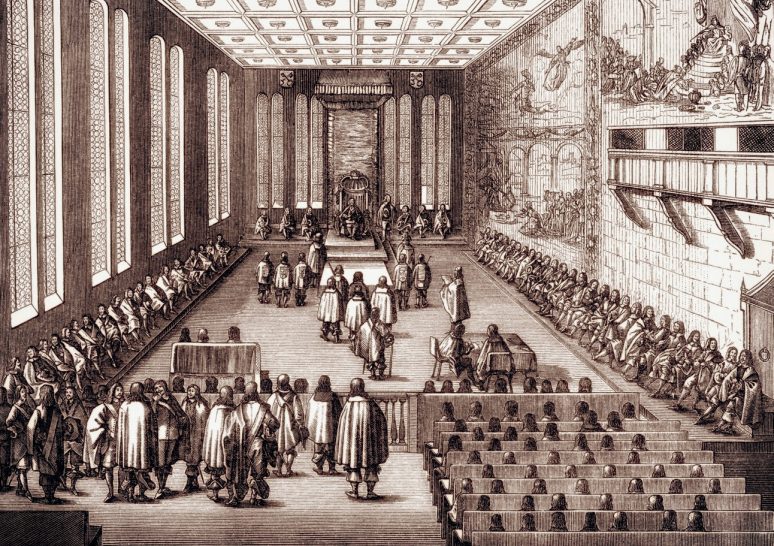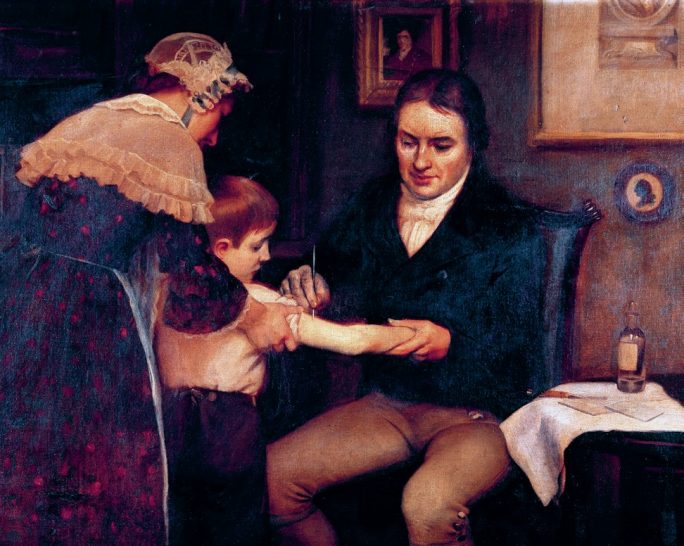Women in Tudor politics
Family factions at court
While previously overlooked, we now understand the importance of the role of women in Tudor politics. This article explains why
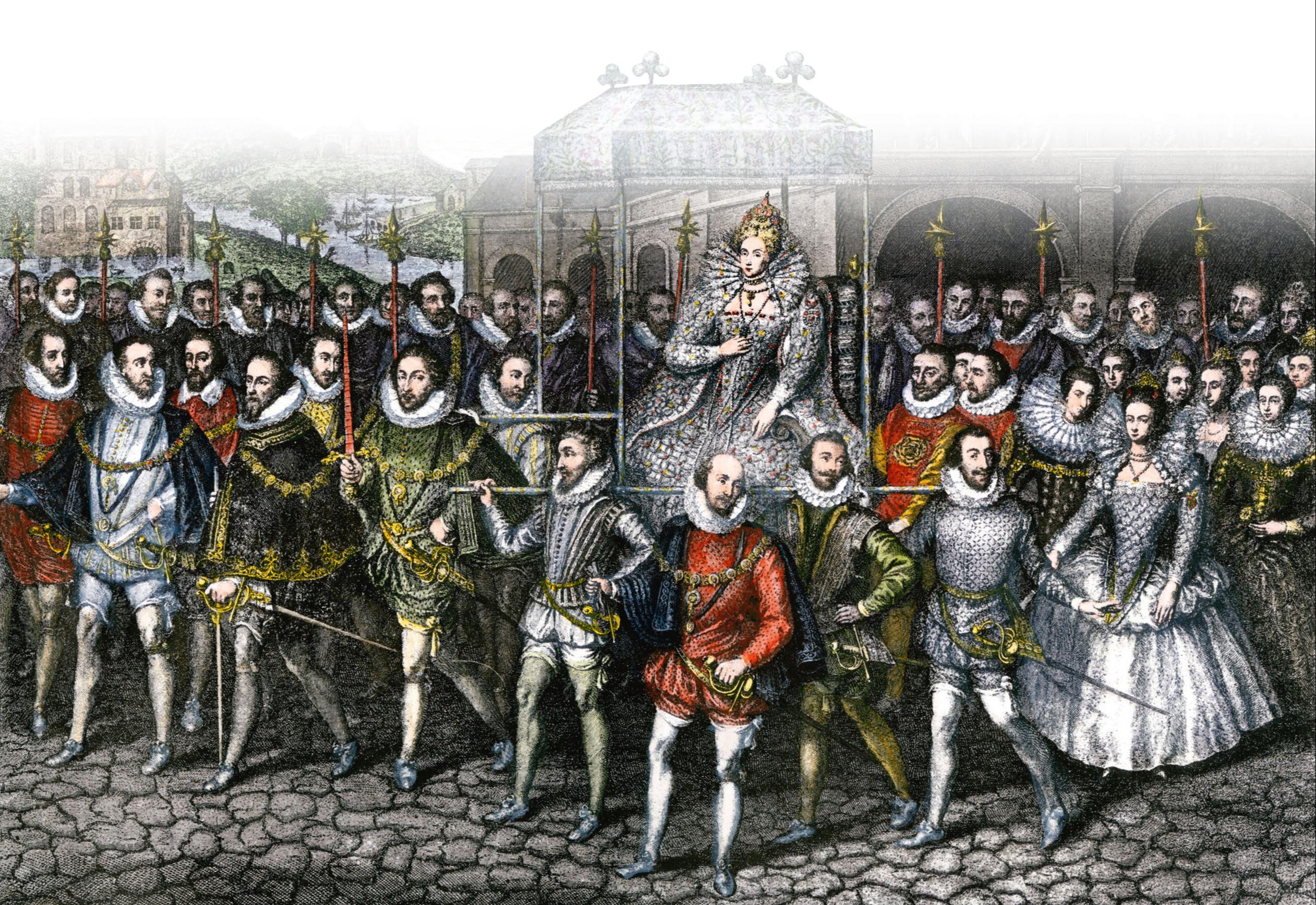
Noblewomen had a greater role in Tudor politics than is often appreciated. Experts at survival, negotiating the competing demands of their families and queen, ladies-in-waiting were serious political players.
Women could not hold office in Tudor England: there were no female chancellors, privy councillors, or Justices of the Peace. For much of the twentieth-century, historians therefore assumed that women were outside of the sphere of political power. However, work by David Starkey and others made it clear that informal personal relationships were often the key to political influence. Historians like Olwen Hufton and Barbara Harris argued that this meant women were more important than previously thought. They were often ‘the oil on the wheels’ of these relationships. Taking a female perspective also sheds a different light on court ‘factions’, or political interest groups, which are often perceived to have been grouped around families.
EXAM LINKS
AQA 1C The Tudors: England, 1485–1603
Edexcel Paper 1, Option 1B England, 1509–1603: Authority, nation and religion
Edexcel Paper 3, Option 31 Rebellion and under the Tudors, 1485–1603
OCR Y 106/136 England 1485–1558: The early Tudors
OCR Y107/Y137 England 1547–1603: The later Tudors
OCR Y306 Rebellion and disorder under the Tudors 1485–1603
WJEC Unit 1, Part 1 Government, rebellion and society in Wales and England c.1485–1603
WJEC Unit 2, Part 1 The mid-Tudor crisis in Wales and England c.1529–1570
WJEC Unit 2, Part 1 Problems, threats and challenges, c.1529–1553
WJEC Unit 3, Part 2 Poverty, protest and rebellion in Wales and England, c.1485–1603
WJEC Unit 4, Part 2 Challenges facing Mary and Elizabeth, c.1553–1570
Ladies-in-waiting
Noblewomen with positions in the queen’s household were especially close to the centre of power. Service to the queen came in two forms: ‘ordinary’, which meant live-in, daily attendance, and ‘extraordinary’, which meant temporarily covering for somebody else’s absence, or a noblewoman who had ‘popped in’ while in town.
There were usually around twenty women in ordinary service at any one time: between two and four ‘great ladies’ of high status, seven or more ‘ladies’ or ‘ladies and gentlewomen’ and between two or four chamberers, women of lower status whose job it was to look after the queen’s rooms and belongings. As the sixteenth century progressed, it became normal for there to be around six ‘maids of honour’ — usually young, adolescent women in their teens. These girls were under the care of the ‘mother of the maids’ a more mature woman, often a former maid or lady-inwaiting, who trained, supervised and protected the maids themselves. Extra noblewomen would also be drafted in for ceremonial occasions like coronations.
Role
With only twenty women in the queen’s service in a royal household that could number more than five hundred, ladies-in-waiting were conspicuous. Their role was wide and varied. In essence, they were there to serve the queen in whatever way she required. This could include personal service, such as helping the queen to get dressed and undressed, taking care of her clothes and jewels, keeping her chambers clean and attending her wherever she went and whatever she was doing, from banquets with foreign ambassadors to sharing her bed at night. While elsewhere these might be considered menial tasks, at court these were duties of great honour.
Female courtiers, then, needed a large and diverse skillset. They had to be able to talk with a variety of people of different genders, statuses, and nationalities, meaning that language skills were an advantage. They needed to be able to dance, sing and play musical instruments, to ride and hunt and be able to stay up late and get up early repeatedly without flagging. Evidence from the Lisle letters in the mid-1530s shows that the concept of the virtuous female courtier was taken seriously. Lady Lisle was advised to make sure that her daughters hoping to enter the queen’s service were:
‘Sober, sad, wise and discreet and lowly above all things, and to be obedient…and to serve God and to be virtuous, for that is much regarded, to serve God well and to be sober of tongue.’
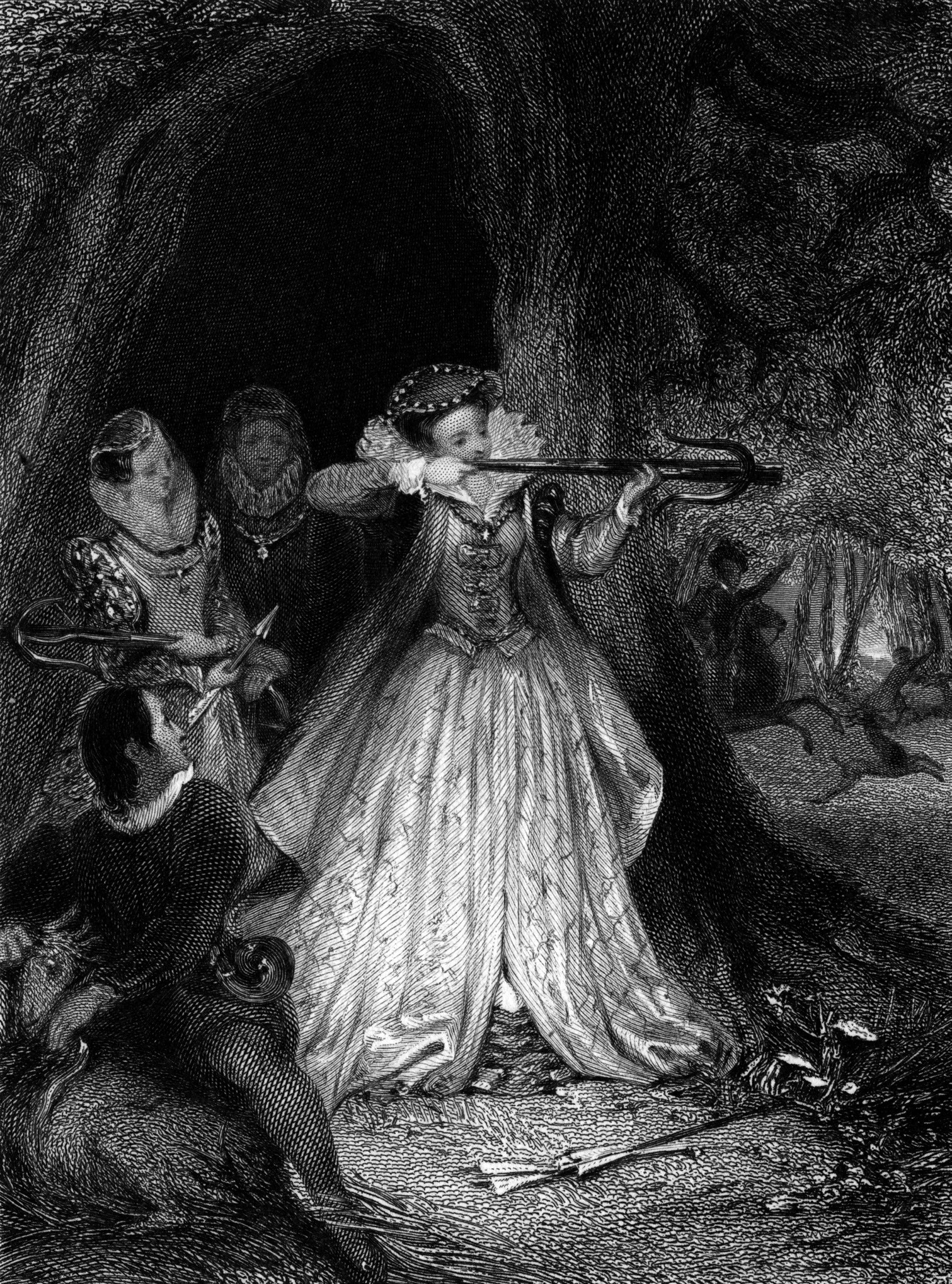
Loyalties
It is usually said that women were placed in court service by their families, who wanted eyes and ears near the monarchs. Women in service might well see and hear all sorts of important information that they could then pass on. They also had access to areas of the court which were barred to most or all men: only the queen’s women would enter her bedchamber. Women therefore functioned as barometers of the queen’s mood, and might be her confidantes, or be used by her to dispense patronage, or even to send out specific political messages. Natalie Mears has described how Elizabeth I used her ladies-in-waiting to give out false information about her willingness to marry, which affected international diplomacy.
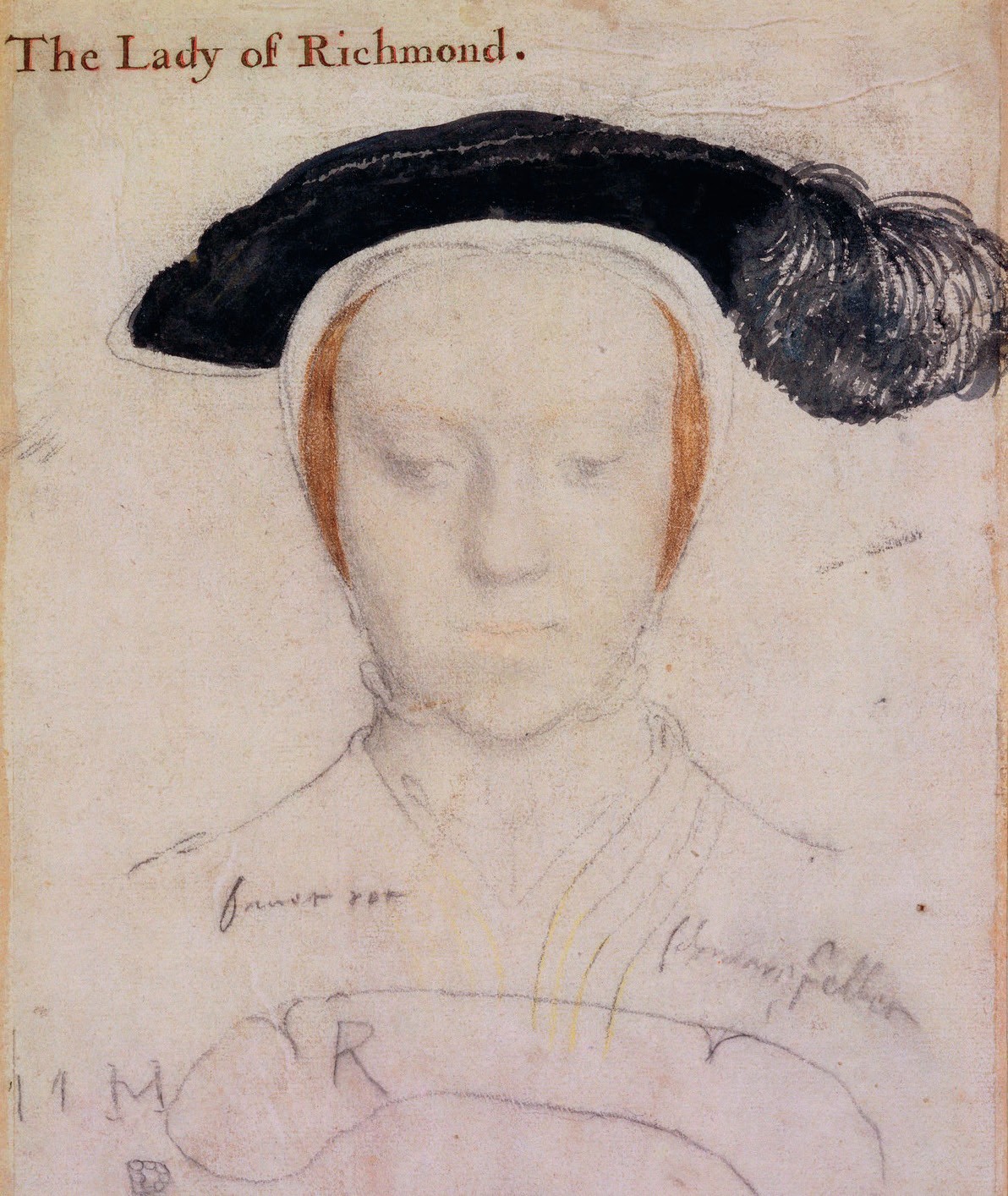
Sometimes, however, a woman’s family interests and those of her mistress might clash, and she had a difficult choice to make about her loyalties. In the 1530s, Elizabeth, Duchess of Norfolk, was one of Catherine of Aragon’s ladies-in-waiting. Anne Boleyn, however, was her niece-by-marriage, and the rest of the family, including Elizabeth’s husband, were supporting Anne’s bid for the throne. Elizabeth had to decide where her loyalties lay, and what was safe for her to do.
Spies behind the scenes
On 27 November 1530, Eustace Chapuys, Spanish ambassador, reported to his master the Emperor that the Duchess of Norfolk had sent Catherine a present that enclosed a letter from the king’s ambassador in Rome. Chapuys did not say, and perhaps did not know, whether the letter in question was addressed to the queen or to somebody else, and so we cannot know whether Elizabeth was merely acting as a go-between for an established chain of illicit communication, or whether she was acting on her own initiative. In either case, Elizabeth was clearly giving the queen information about progress in Rome that she did not already have access to: she was spying for her.
This continued over the next six months. At one point, Elizabeth sent a message to the queen to tell her that her opponents were ‘at their wits’ end, being further off from their object than the day they began.’ The queen’s ‘opponents’ were, of course, Anne Boleyn and her supporters: Elizabeth’s own family, the Howards, including her own husband, the Duke of Norfolk.
If, as seems likely, the Duke was leaning on his wife to renounce her support for the queen, she was clearly refusing to do so. This was a direct clash of loyalties. Elizabeth’s actions show that women took advantage of the access that they had on both the king’s and queen’s sides of the household. When Elizabeth was at court during this time, she was lodged on the king’s side with her husband, and this is undoubtedly how she was able to gain the information that she did. Her access to the queen’s chamber then allowed her to pass it on without suspicion.
In May 1531, she was sent home ‘because she spoke too freely, and declared herself more than they liked for the queen.’ Evidently, women’s roles at court were more than simply backing up the family interests, and loyalties could get complicated when courtiers were forced to ‘take sides’ in this way. It might be pertinent to note that Elizabeth absented herself from Anne Boleyn’s coronation in 1533 on account of her support for Catherine of Aragon.
Family factions?
The exploits of the Duchess of Norfolk’s daughter Mary, Duchess of Richmond, also show that for women, being a courtier involved more than simply supporting your family’s interests. For Mary, this is partly because — as must have been the case for many individuals — ‘family interests’ could be many, and varied, and were not necessarily collective. What one individual thought was good for the family might not enjoy a general consensus.
This was the case in July 1536, when an affair and contract of marriage was discovered to exist between Mary’s cousin, Lord Thomas Howard, and her close friend Lady Margaret Douglas, the king’s niece. The inevitable investigation found that the couple had ‘loved’ for a year and had been married since Easter 1536. Mary had known about their affair and marriage since it began. A witness stated that Lord Thomas would wait until everybody else had gone and then sneak into Lady Margaret’s chamber while Mary was present. She had therefore acted as the couple’s accomplice and chaperone.
The fact that they had had to sneak around and wait for other people to leave shows that they clearly understood that what they were doing was not altogether a good idea. People with royal blood were not allowed to marry without royal permission: the king would not approve. On the other hand, Mary may have thought that she was doing her family a favour by enabling her cousin to marry into the royal family. This highlights the difficulty with seeing aristocratic families as collectives or ‘factions’ at court. The Howards were such a vast family that it would be naïve to expect them to all hold the same views all of the time.
The power of women
It was not easy to be a woman at the Tudor court. As Henry VIII changed wives, and changed the country’s religion alongside this, these women had to make choices about loyalty that simply didn’t exist before, and would never exist like this again. The actions that they took shaped the nature of change going forward, and those actions were not always on behalf of, or in accordance with, broader family goals or allegiances.
KEY FIGURES
Elizabeth Stafford/Howard, Duchess of Norfolk (c. 1497–1558)
■ Daughter of Edward Stafford, 3rd Duke of Buckingham, and Eleanor Percy.
■ Married to Thomas Howard, later 3rd Duke of Norfolk, in 1512.
■ Lady-in-waiting to Queen Catherine of Aragon between 1512 and 1531.
■ Remained loyal to her throughout the royal divorce and refused to attend Anne Boleyn’s coronation.
■ Objected to her husband keeping a mistress, and was placed under house arrest by him throughout the 1530s and 40s.
Mary Howard/Fitzroy, Duchess of Richmond (c. 1519–c. 1555)
■ Daughter of the above.
■ Married to Henry Fitzroy, Duke of Richmond (d. 1536), illegitimate son of Henry VIII.
■ Made her court debut in the service of Anne Boleyn in 1532.
■ Widowed in 1536.
■ Later became involved in religious reform.
FURTHER READING
Hufton, O. (2000) Reflections on the role of women at the early modern court. Court Historian, 5(1). Chapters 1–13.
Harris, B. (1990) Women and Politics in Early Tudor England. The Historical Journal 33(2), pp. 259–281.
Akkerman, N. and Houben, B., eds. (2014) The Politics of Female Households: Ladies in Waiting across Early Modern Europe. Leiden, pp. 1–27.
EXAM FOCUS Using this article in your exam
How could this article be useful in your exam?
Many students will be following a specification that is focused on the Tudor period and will be asked to consider the role of women via an analysis of Mary and Elizabeth. These key historical figures are usually presented relative to the position of powerful men at the time but it is rare to come across, in standard textbooks, material that considers the influence of women in their own right. You can use Nicola Clark’s article to great effect by:
■ Using her material on ladies-in-waiting to show how the role of women in Tudor politics was far greater than is often thought (especially by male historians!)
■ Considering the concepts of loyalties, spies behind the scenes and family factions as different ways of looking at the machinations of Tudor government.
■ Taking on board the idea that the role of women varied considerably and thus preventing a tendency to overgeneralise and stereotype.
■ Paying attention to the snippets of historiography that are included and thinking about how these can be used as evidence to support your own viewpoints.
Few exam questions on the Tudors are likely to have a focus purely on the positioning of women in politics and government (other than those that are about Mary and Elizabeth). However, the material in this article could still be used in questions such as: ‘Assess how marriage and succession influenced domestic developments in the period from 1558 to 1603.’ Write a first paragraph to this question that includes comment about the power wielded by women.




